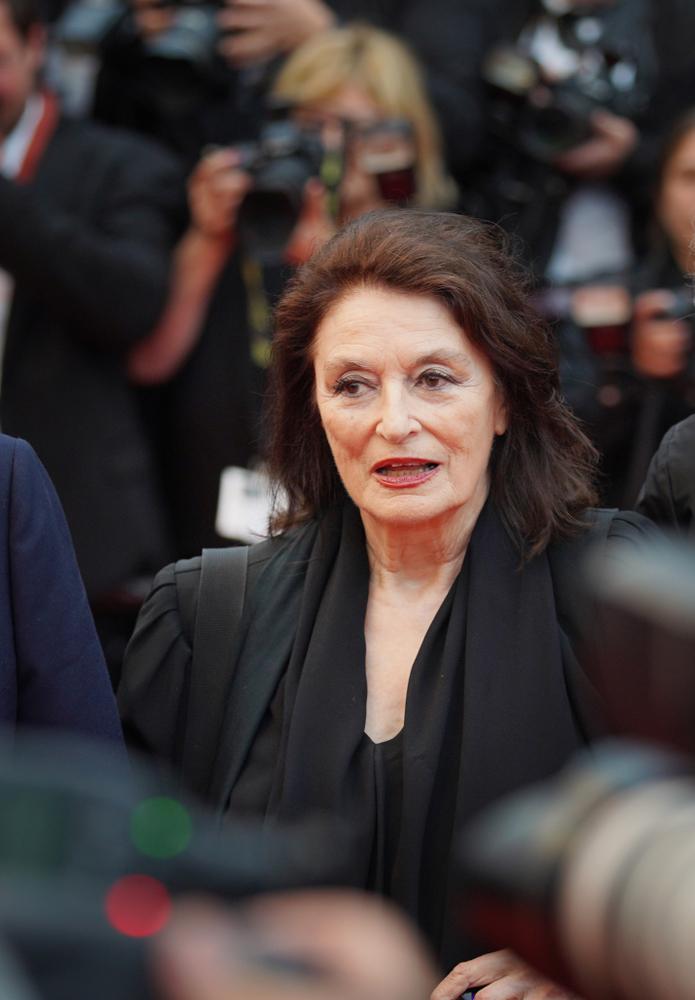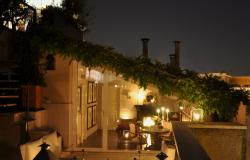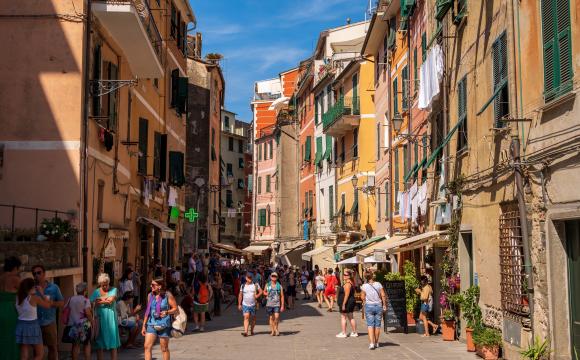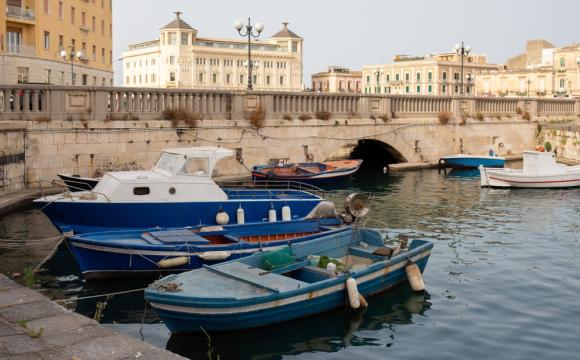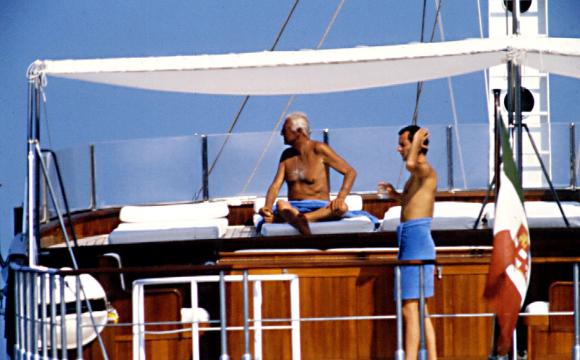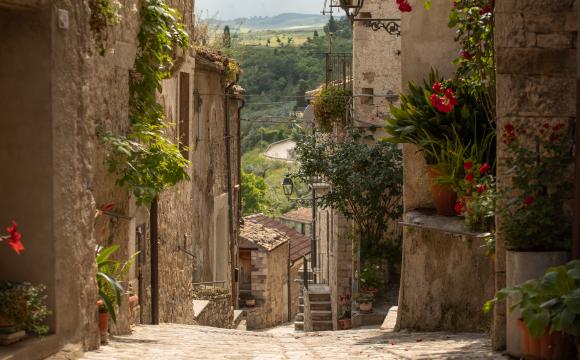Elegant French actress Anouk Aimée, well-known in Italy for her roles as a despondent femme fatale in La dolce vita (1960) and a long-suffering wife in 8 ½ (1963), died in her home in Paris on Tuesday at the age of 92. The announcement of her passing came from her daughter, Manuela Papatakis, via Instagram.
In a statement following Aimée’s death, Italian Undersecretary for Culture Lucia Borgonzoni called the actress “an icon of international cinema, inextricably linked to Italy” who was “an example of how it’s possible to combine grace and profundity in the art of film acting.”
Aimée’s real name was Judith Dreyfus, though some official documents list her first name as Nicole, according to The Hollywood Reporter. She was born in Paris in 1932 to a Jewish father, Henri Dreyfus (Murray), and a Roman Catholic mother, Geneviève Sorya (née Durand), both of whom were actors. During World War II, Aimée took her mother’s maiden name to escape Nazi persecution and moved between Paris and the south of France, eventually attending boarding school in the Alps.
Aimée landed one of her major screen roles at the age of just 14, playing a character called “Anouk” — a name she would adopt for the stage, adding Aimée (French for “loved”) at a friend’s suggestion. Two years later, she would star in Lovers of Verona (1940), a French-directed, Venice-set adaptation of Romeo and Juliet.
The Italian connection
In 1960, film director Federico Fellini cast Aimée as the wealthy and seductive heiress Maddalena in his iconic film La dolce vita opposite Marcello Mastroianni. Three years later, Aimée worked with Fellini and Mastroianni again, playing Mastroianni’s character’s long-suffering wife Luisa in Fellini’s semi-autobiographical 8 ½.
Over her illustrious career, Aimée made some 40 films and became the first performer to receive an Academy Award nomination (Best Actress) for a French-language performance (as Anne Gauthier in Claude Lelouch’s 1966 film A Man and a Woman). But it was her memorable appearances in those two Fellini masterpieces that cemented her place in Italian cinematic history.
Over the years, Aimée remained friends with both Fellini and Mastroianni, crediting them for teaching her about acting. When recalling working with the maestro, Aimée once said, “I discovered laughter and the joie de vivre, and I learned to love my job as an actress.”
Below, we take a look back at some of Anouk Aimée’s most iconic roles in Italian or Italian-set movies that you may or may not already know.
Maddalena in La dolce vita (1960)
Likely needing no introduction, La dolce vita (The Sweet Life) follows the day-to-day exploits and encounters of tabloid journalist Marcello Rubini (Mastroianni) against the backdrop of a postwar Rome in spiritual decay. Aimée’s role as Maddalena, one of Marcello’s conflicted love interests, jettisoned her into stardom and garnered her the 1961 Étoile de cristal for Best Actress.
Lola/Cécile in Lola, donna di vita (1961)
Though directed by Frenchman Jacques Demy, and largely in French language, Lola was partly filmed in Italy and co-produced by Carlo Ponti, Sophia Loren’s husband, so we’re including it on our list. It’s the story of a beautiful cabaret performer (Aimée) and a directionless young man (Marc Michel) who knew her in school, reconnects with her and becomes smitten once again.
Luisa in 8 ½ (1963)
Exploring the creative pitfalls of filmmaking stardom, Fellini’s semi-autobiographical story is about a successful director, Guido Anselmi (Mastroianni), and the characters who have colored his life. Aimée stars as his estranged wife, Luisa, said to be based on Fellini’s real-life wife, Giulietta Masina. The Broadway musical Nine was an adaptation for the stage.
Carla in The Appointment (1969)
Aimée starred in Sydney Lumet’s Rome-set psychological thriller The Appointment (1969), portraying a woman suspected of being a high-class prostitute by her jealous husband (Omar Sharif).
Marta in Salto nel vuoto (1980)
Another Italian-French collaboration, Marco Bellocchio’s Salto nel vuoto (Leap into the Dark) earned Aimée the Prix d'interprétation féminine (award for best actress) at the 1980 Cannes Film Festival for her role as protagonist Marta, a woman whose psychological problems present challenges for her brother Mauro (Michel Piccoli, who took home the equivalent Cannes award).
Barbara in La tragedia di un uomo ridicolo (1981)
Bernardo Bertolucci cast Aimée as Barbara, the aristocratic wife of Primo, a well-to-do cheese factory owner of humble beginnings (Ugo Tognazzi). In this Parma-set story, tragedy and drama ensue when the pair’s son is kidnapped and held for ransom.
